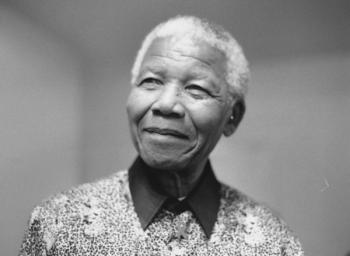In the aftermath of the Quebec City mosque attack, we have heard and read all kinds of language to describe the event. "Hate crime," "mass murder" and "terrorist attack" were all used and they all, to some extent, do define what has happened. However, one confused TVA anchor said on air that this was a case of "reverse" terrorism. As if terrorism had only one form: Muslim against others.
The TVA anchor has since apologized for his words, but his statement is reflective of a much larger problem: many people seem confused about when to properly use the term "terrorism." This is no surprise considering the fact that even pundits and governments are unable to agree on when to apply the term.
Some scholars believe we might possibly be in a new era of terrorism. The methods, targets and causes have drastically changed: violence is no longer always aimed at States, or to assert ideologies or to gain independence. Some terrorist organizations such as ISIS or Al-Qaeda now carry out attacks more to gain visibility than to convey a message. They use violence not as a mean for denunciation, but as publicity.
However, we seem to forget that terrorism is not a contemporary phenomenon and that its Golden Age took place in the U.S. in the 1970s. Most millennials would be surprised to learn that it hasn't always been about Islamists blowing up planes, buildings or themselves. This common vision of the "modern terrorist" mostly emerged after the 9/11 attacks, Bush's war on terror and the massive media frenzy it initiated. In reality, before this history-changing event, many different groups and individuals with radically different motives had been deemed to be terrorists. They came from different religions, political ideologies and parts of the world, but they all shared something: a government somewhere had labelled their activities as "terrorist."
My use of the term "labelled" is a deliberate one, since the word "terrorism" is easily exploited for political purposes. For example, the 1993 Nobel Peace prize winner, Nelson Mandela, was on the United States' terrorist list until 2008, even after having been democratically elected. It was with his initial support for violent resistance against South Africa's brutal Apartheid regime that he gained the terribly sticky "terrorist" label.
Of course, by this time, the Apartheid regime had already rendered most non-violent forms of resistance illegal. It was after the Sharpeville massacre that Mandela began to advocate for the necessity of violence in the fight against the oppressor and created the armed wing of his party, the African National Congress. Thereafter, in order to reject the ANC's call for black rights and liberation, the Apartheid regime simply labelled the whole organization as "terrorist."
From this and other examples, we understand that the designation of a terrorist organization often involves a domination process. Indeed, prior to Mandela's turn to violence, the Apartheid regime's forces had been arbitrarily killing civilians during protests, but since these attacks emanated from the government they were somehow considered legitimate. Their victims, of course, had been "marching illegally" or "meeting illegally," and deserved the full force of the law, according to the Apartheid government.
This underlines an ongoing problem: a consensual definition of "terrorism" will always be disputed due to all the political and emotional baggage it carries. Indeed it takes a whole chapter in The Routledge Handbook of Terrorism Research in order to try to define what exactly a terrorist act is. Not surprisingly, there is still lack of consensus on the criteria by which to decide whether a violent act is simply a crime or terrorist activity. However subjective this definition might be, most Canadians would agree that terrorism is some form of violence against civilians for political or ideological purposes.
In Canada however, when we discuss the issue of terrorism, it is almost always regarding an Islamist-inspired attack on Western soil. Rarely do we refer, for example, to American extra-judicial drone attacks in the Middle East as "terrorist," even though such attacks on civilians may indeed seek to destabilize a foreign regime. So perhaps our TVA anchor can be excused for his confusion and comment about "reverse terrorism." Nevertheless, if we collectively choose to say that an attack against civilians on Parliament Hill is a terrorist attack -- as indeed it was deemed by the RCMP -- Bissonette's case should be no different.
The police haven't released all the details of Alexandre Bissonnette's profile, but it appears very likely he sought to intimidate and scare off Canada's Muslims. As such, he murdered six men in Quebec City in order to intimidate an ethnic minority for an ideological purpose. Some might argue that he is a lone wolf who does not represent Canadian values; that he must be seen as a solitary deranged individual who committed a hate crime. Muslims and Arabs view Michael Zehaf-Bibeau -- the 2014 Parliament Hill shooter -- in the same way: a lone wolf who does not represent Muslim values. There is no "reversing" going on except within our own perceptions, and Bissonnette is no less a terrorist than Zehaf-Bibeau.
Caroline Biotteau is a research analyst with Canadians for Justice and Peace in the Middle East (CJPME.) She holds a Bachelor’s degree in International Studies from the Université de Montréal, has studied at the Political Science Department at Stellenbosch University in South Africa, and has participated in The Washington Center, in Washington, D.C.
Please chip in to keep stories like these coming.
Image: Wikimedia Commons




Comments
Do
Don't